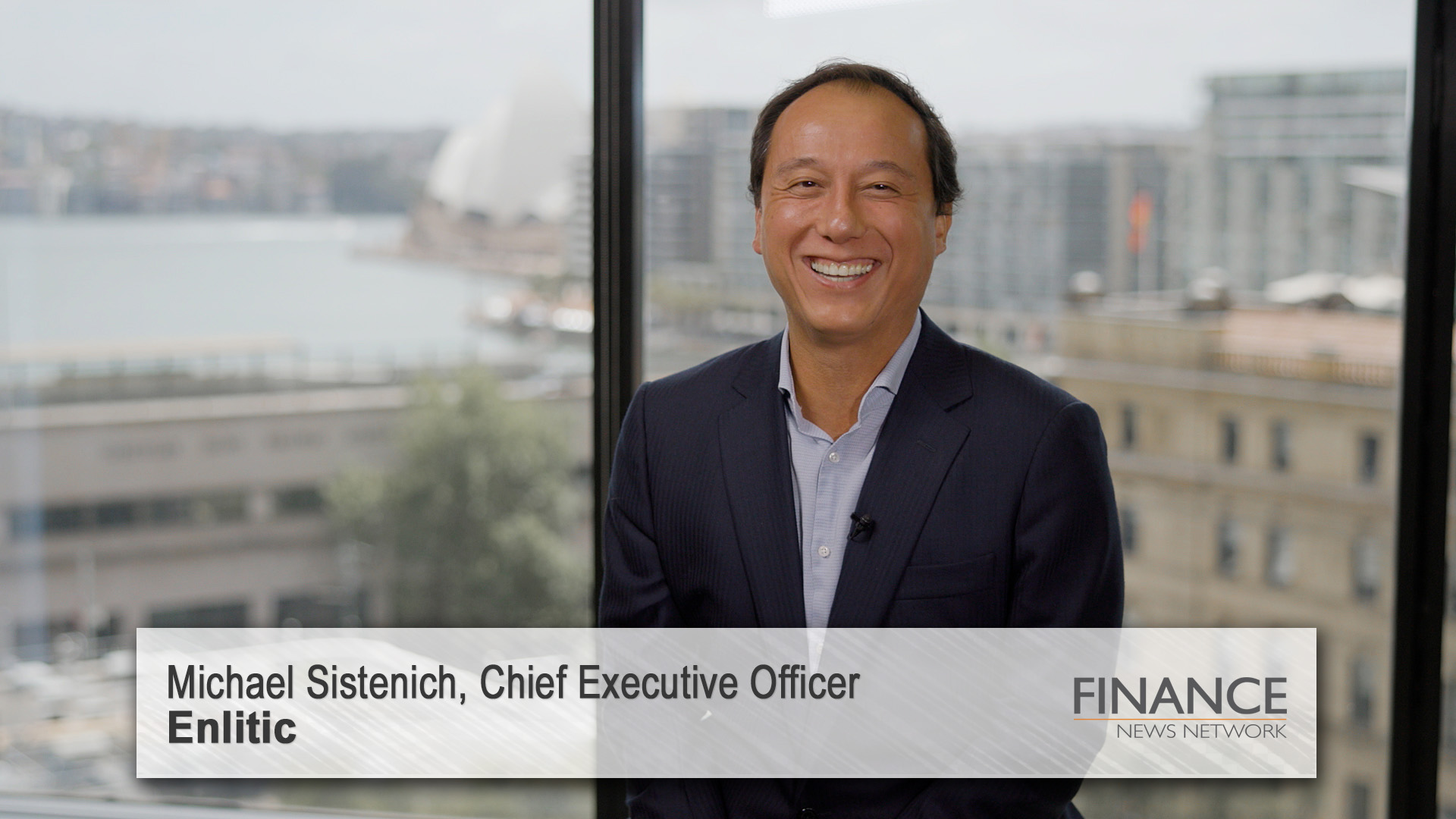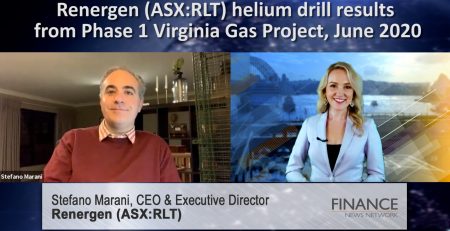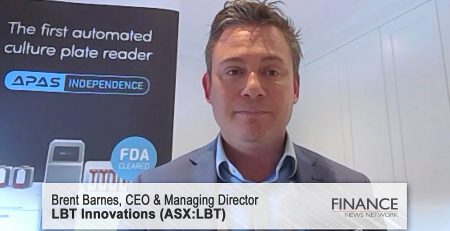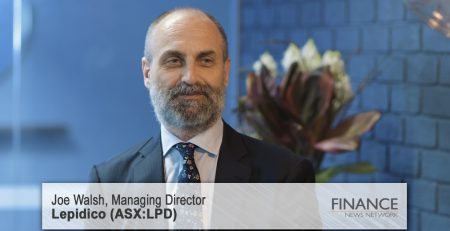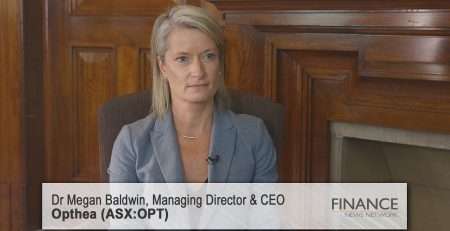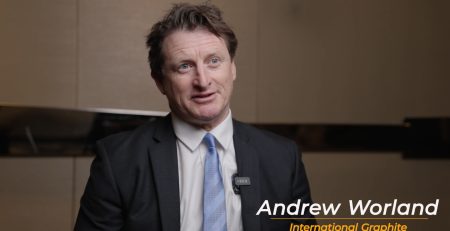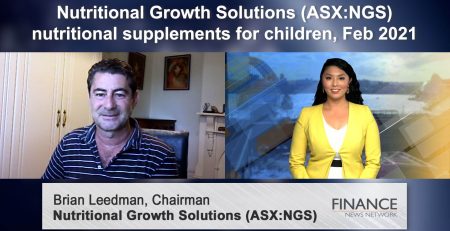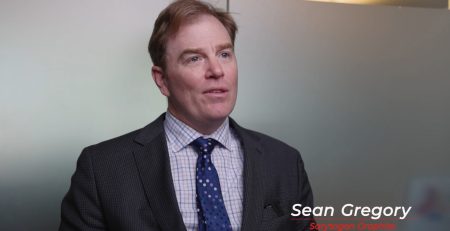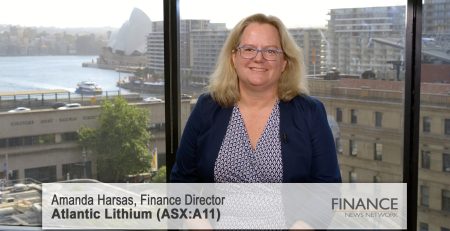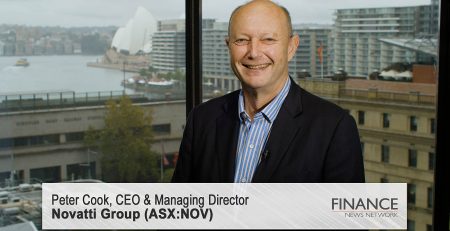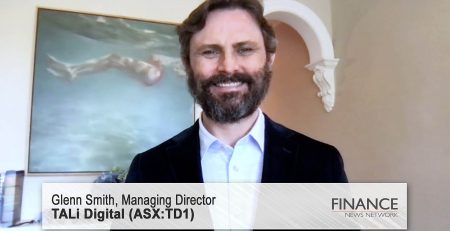AI healthcare company Enlitic to list on ASX
Enlitic CEO Michael Sistenich discusses the company's AI solutions for healthcare data management as the company gears up for its December IPO.
Paul Sanger: I'm Paul Sanger for the Finance News Network, and today I'm talking with Enlitic. Enlitic plans to IPO on the ASX in mid-December. Enlitic utilises artificial intelligence to offer data management solutions primarily in the medical imaging sector. We welcome Enlitic Executive Director and CEO, Michael Sistenich. Michael, welcome to the Network.
Michael Sistenich: Hi Paul. Thanks for having me.
Paul Sanger: Michael, to kick things off, can you give us a brief overview of Enlitic?
Michael Sistenich: Sure. At Enlitic, we're a technology business utilising AI techniques and tools in order to extract efficiencies out of messy imaging data, that results in a benefit for multiple parties within the ecosystem. For example, physicians and radiologists get a better work experience, they get efficiencies and their time back and they're able to do more work, and it helps to increase the profitability of our clients.
Paul Sanger: And Michael, what is the problem that you're trying to solve?
Michael Sistenich: The problem we're trying to solve is a longstanding and entrenched problem within healthcare, which is around the difficulty of how healthcare data is moved, stored, and utilised. What is little known is that about a third of the world's digital data is in fact healthcare data. And the challenge that we have is that we are data rich, but information poor. It is hard to get the information out of that data that can benefit the health system and patients. For example, if a patient is traveling from one geography like Australia to Europe, the ability to transport that data in an efficient way so it can be used in the same way at both ends is extremely challenging. And a number of these types of challenges can be solved with the technology that we have developed.
Paul Sanger: And how is Enlitic different from other diagnostic AI companies?
Michael Sistenich: That's an excellent question. There are about 100 plus diagnostic AI companies out there in the world. The vast majority of them are focused on what's called detection and triage. It's a very sexy space and it's quite intuitive. Companies are able to generate algorithms that will detect whether a chest x-ray or chest CT has a lung nodule in it that could be cancerous, or a fracture, et cetera. Where we are different is we work in the background. We are more like the rails and pipes or the picks and shovels of the system that standardises the data, ie, transforms the data into a format that can be utilised by those types of businesses and other parts of the healthcare system.
Paul Sanger: And what is the total serviceable market in terms of dollars?
Michael Sistenich: In terms of our first product in market index, we estimate the total serviceable market to be in excess of $3 billion. We are developing a number of other products and features that integrate together with our base solution, and obviously that will increase the value of the solutions that we're bringing to market.
Paul Sanger: And who do you come up against when you're tendering for new clients?
Michael Sistenich: It's interesting from the point of view that we are a first-in-class technology. We're the first company to have solved this problem, and so there really isn't a tendering process as such. There are no current solutions that are an alternative to what we do. And so, if a client is seeking this type of a solution to help manage and standardise their data, the alternative to actually adopting our technology is currently to do it manually through hiring a number of people to do it yourself.
Paul Sanger: And can you help hostels to monetise their data?
Michael Sistenich: Yeah. Data monetisation is a very hot topic. As I mentioned before, about a third of the world's digital data is healthcare data. So a number of healthcare organisations around the world, they are aware that they are sitting on a treasure trove of information and of data. The difficulty is being able to access that. And what our tools do is we help the company structure their data, increase the fidelity of that data, which is the quality of that data, and help them to be able to search and find the information that they need. So ultimately that will enable them to use their data, whether in data monetisation or in creating better clinical care for their patients.
Paul Sanger: Michael, what is your commercialisation plan pathway to market?
Michael Sistenich: We have been commercialising since the beginning of 2022. And as you can imagine, healthcare is a space that requires a great deal of trust, and you have to build these relationships with the health organisations over a period of time. We currently have clients already signed and live with our technology. And we have a pipeline that has been built over that period of time in excess of another 100 clients and potential clients who've been evaluating our technology over that period of time, with an estimated value of that pipeline just shy of 100 million US dollars. And that's the pipeline that I mentioned, but we continue to accelerate in that trajectory. To give you an idea of that, we started the year with one client, and one of the main focuses of the organisation is to convert that pipeline, that rich pipeline of clients that we have, into paying customers.
Paul Sanger: And what does the pipeline for additional new contracts currently look like, and how confident are you on converting these?
Michael Sistenich: The current pipeline in what we call total contract value, which is the value of that contract over the term for which it's signed, and it's worth just touching on our business model. Our business model is an annual recurring revenue model that is a minimum term fixed at the beginning for between three to five years. That pipeline is currently just shy of 100 million US dollars.
Paul Sanger: And how will the IPO funds be used?
Michael Sistenich: The utilisation of the funds is primarily for the growth of the business, and that really addresses two main parts of the business. One is within sales and commercialisation. And as I mentioned before, that is in order to convert our existing interest into paying clients. And the second part of the use of funds is to go into continued development of our technology. The strategy that we have is once we have helped to standardise and curate and improve the data for these health systems, our additional technologies are synergistic. They're built upon that platform to help our clients extract clinical value. And by that we mean improved care, greater efficiencies and better outcomes for patients, or what we call clinically adjacent value. And that's potentially in reducing administrative costs or increasing revenues for the organisation.
Paul Sanger: And to finish up today, tell us what excites you most about the Enlitic opportunity.
Michael Sistenich: I have spent over 25 years in the healthcare industry, across a number of different sectors, and what really excites me about Enlitic is the opportunity to actually solve a longstanding problem and deliver a truly valuable solution to the market. And I like to frame that in saying we have a holy trinity in healthcare, in the sense that what we're trying to achieve is to treat more patients, to treat them with better clinical outcomes, and to treat them at a lower cost. Our solutions have the ability to do that, and as such has the ability to really be valuable across the healthcare ecosystem for patients, for the payers, and for the health systems and physicians.
Paul Sanger: Michael, it's been an absolute pleasure speaking with you today, and I wish you and the company every success with the IPO in December.
Michael Sistenich: Thanks very much, Paul.
Ends
If you would like to get involved in the Enlitic IPO, click here for more information.
Copyright 2023 – Finance News Network
Source: Finance News Network

